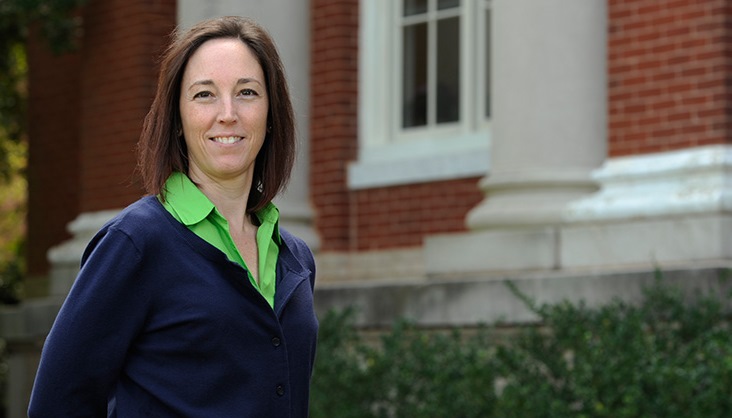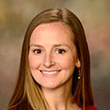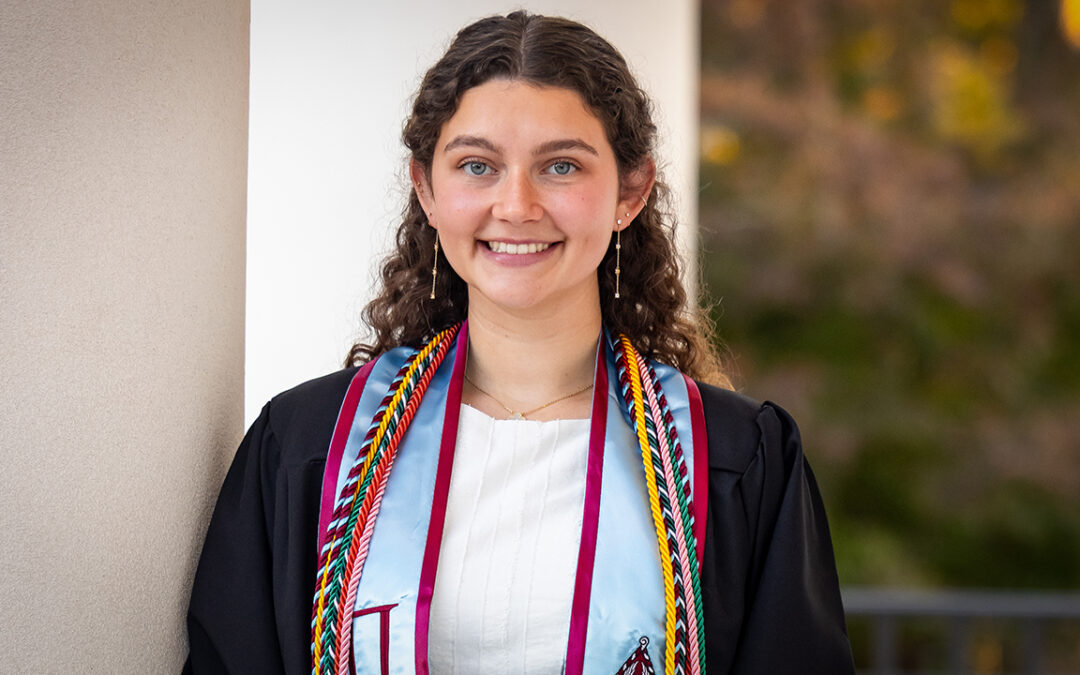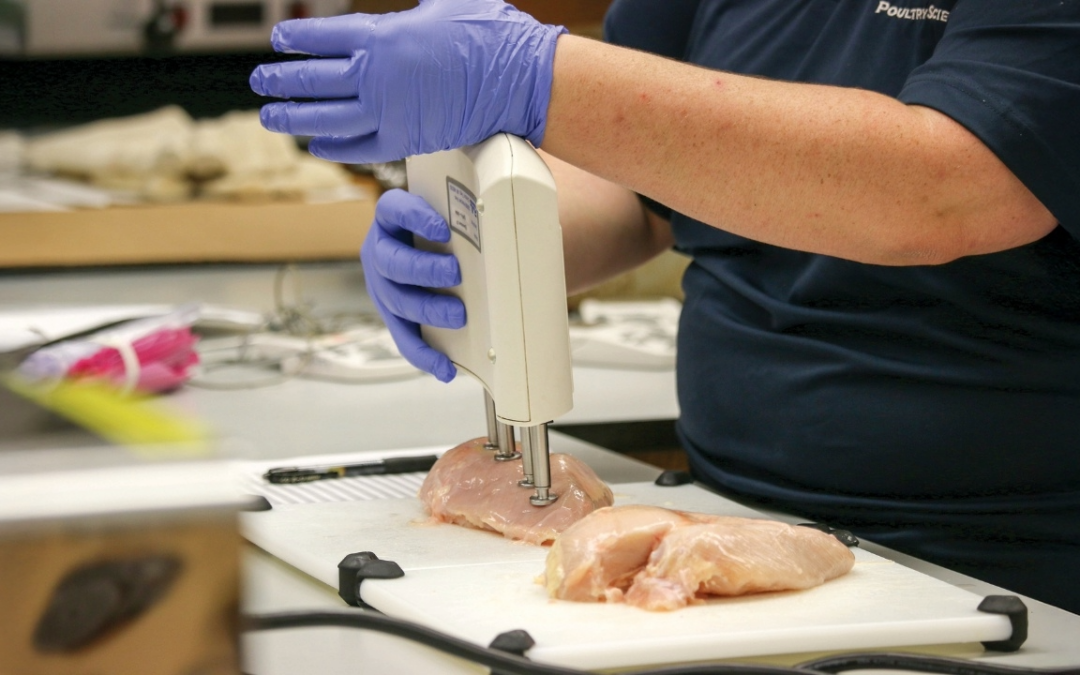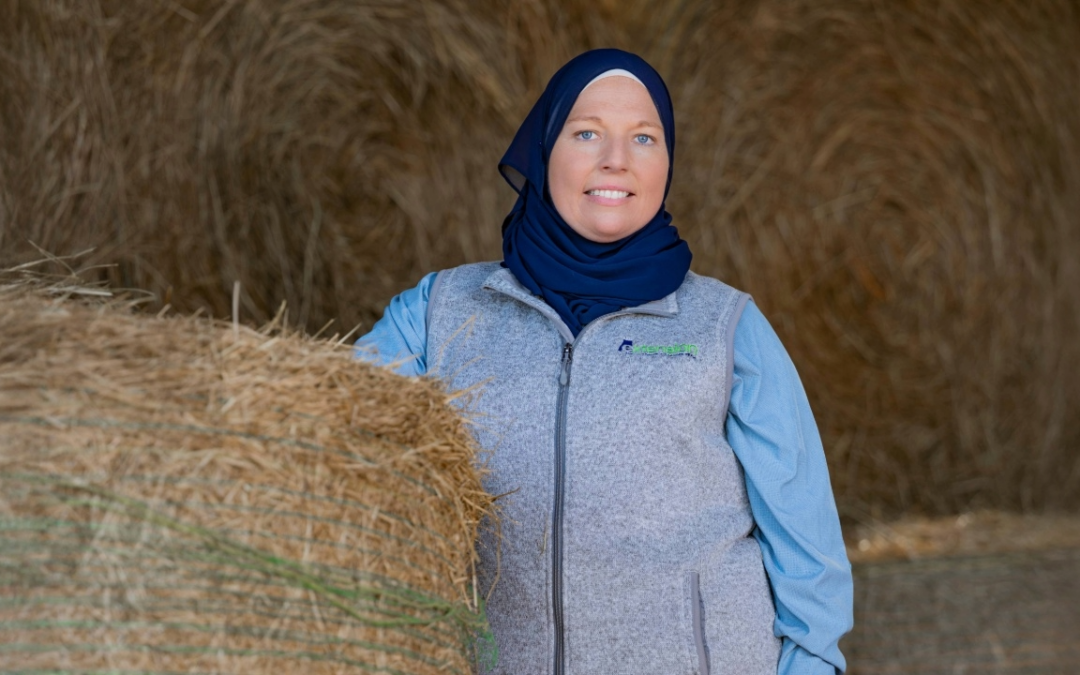
Michelle Worosz of the Department of Agricultural Economics and Rural Sociology is working to ensure a safe, healthy and abundant food supply for Alabamians.
Associate professor’s passion for people and places drives food security work
by MARY CATHERINE GASTON
It sounds like the story line of a summer feel-good flick: A typical kid grows up in the suburbs of Detroit, finishes high school and enlists in the Navy. As a member of the hospital corps, she spends a few years serving critical-care patients in the nation’s top military hospital, where she develops a passion for human health and a keen understanding of the role diet plays in it.
When she’s assigned to a duty station in the Spanish countryside, another passion emerges—this time, for rural places. Back in the U.S., after 13 years of military service and three academic degrees, the Detroit kid is on the faculty at an agricultural college in the Deep South, putting her passions to work through teaching, research and outreach and bringing healthy food choices and economic growth to some of the country’s poorest and most rural communities.
While it is a great story, it won’t be coming to a theater near you any time soon. Instead, it’s playing out every day in Comer Hall and across the state of Alabama, as Michelle Worosz works to solve food access, nutrition and economic challenges as an associate professor in Auburn’s Department of Agricultural Economics and Rural Sociology.
What exactly is Worosz doing to address some of Alabama’s most pressing, perennial problems? As a nationally recognized educator, she’s helping undergraduate students understand how the modern American food system has evolved to its current organizational structure and how that structure has been influenced by social processes. Students in one of her classes complete a semester-long project that immerses them in the complicated process of getting food from farm to table.
Helping the next generation of food growers, researchers and policymakers understand the system is not Worosz’s only responsibility. She and colleagues are also actively involved in addressing the system’s shortcomings and challenges. One of the first steps in this process was gathering information. In 2012, Worosz and her team surveyed Alabama consumers to find out what they know and how they feel about the state’s food system. They learned that food security—how much food is available and how easy it is for people to get it—is Alabamians’ top food-related concern.
“As part of this project I started learning a lot of ‘facts,’ such as the extent of the state’s food deserts and associated public health issues like obesity and diabetes, especially among poor and minority populations,” Worosz says.
Knowing these things strengthened her resolve to take concrete action to help increase food security in the state, while at the same time, providing economic opportunities to rural communities. Toward that end, Worosz was one of a small group of concerned individuals from across the state who came together in 2012 to establish the Alabama Food Policy Council. Housed within the Alabama Sustainable Agriculture Network, the AFPC exists to help bring economic opportunity and healthy foods to Alabama’s rural areas.
Additionally, Worosz has worked with colleagues and students to conduct a food security assessment of Macon County, work that helps the researchers gain a better understanding of the scope of food security issues so they can make policy recommendations and help find the partners and funding to make positive changes. And she’s nowhere near being done.
“What continues to motivate me is that everyone eats,” she says. “Food is essential for life, and food that is both healthy and safe is necessary for a productive life. I believe affordable, safe and healthy food ought to be available to everyone.”

